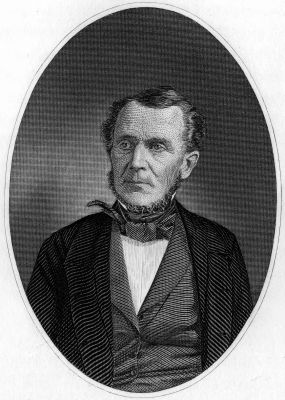William Slade's Anti-Slavery at Middlebury, Town and College
The following represents research in Shaye Anis’s “Contextualizing Bravery: Understanding William Slade’s Rhetoric in Context of the Abolition Movement from 1835-1848.”

William Slade, Middlebury class of 1807, served as Vermont’s Secretary of State, Congressional Representative, and eventually Governor. Over his career, Slade was defined as many things: a compromiser, fierce abolitionist, and as a third-party anti-expansionist. This Twilight Project aims to unwrap and explore the intricacies of his anti-slavery stance, the intersections with his personal faith and political philosophies, while also placing him in the context of his national and local contemporaries.
Playing politics
As a significant political player, Slade’s anti-slavery stance has been heralded statewide as an exemplar in the abolitionist movement. Despite this popular notion, scholars have debated the veracity of Slade’s anti-slavery stance, based upon his complex and at times perplexing political decisions. Historians have situated Slade’s position as both a proponent of the abolition movement, and as a progressive moderate in context with his fellow Congressmen. Although at times Slade aligned with radical immediatists such as Frederick Douglas, he made political decisions that would appease a broad base at the expense of taking meaningful action.
Elected as the sole representative from Vermont in 1832, William Slade entered the spotlight of the abolition debate following his 1835 speech in Congress, where he denounced the barbarity of chattel slavery, breaking the Gag rule which had been put in place because discussions concerning slavery and abolition were deemed as too contentious for the Congressional Floor.
William Slade is widely conceived as a moderate Vermonter who was radicalized to the cause of anti-slavery, as manifested in his abolitionist speech to Congress in 1835. However, the arc of Slade’s politicization is often overstated by scholars who place the former Governor as an adamant abolitionary activist following his speech. There remains a general consensus that his criticism of the institution was unique, considering the decades of tepid political response.
Though Slade admirably derided the moral ills slavery on the national stage, he fell short in his ideological solutions which were too tepid for an issue that only found resolution in civil war.

My name is Shaye Anis, I use he/him/his pronouns and am in the class of 2021.5! At Middlebury I majored in History and minored in Religion. Beyond the academic sphere I spent most of my time having random conversations, being late to a bunch of stuff and trying to find as many swimming spots around the area as possible!

